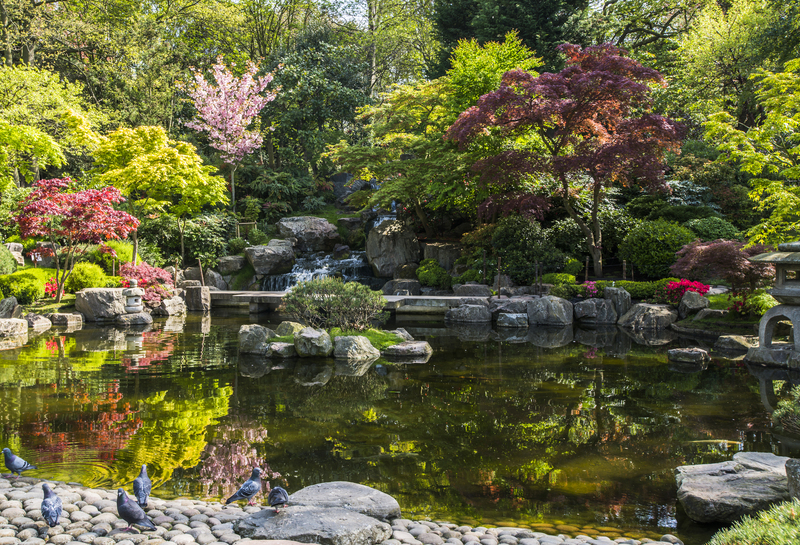Innovative Zen Garden Plans
Posted on 14/09/2024
Zen gardens, also known as Japanese rock gardens or dry landscapes, have fascinated many over centuries due to their minimalistic aesthetics and deep spiritual essence. Traditionally, these gardens are composed of carefully arranged rocks, sand, or gravel that are raked to represent ripples in water. Today, the concept of Zen gardens has evolved, incorporating modern elements without losing their serene and meditative qualities. This article explores innovative Zen garden plans that blend traditional principles with contemporary design ideas.
The Core Principles of Zen Garden Design
Before diving into innovative plans, it is essential to understand the core principles of Zen garden design. These principles include:
- Minimalism: Zen gardens embody minimalistic design, focusing on simplicity and the beauty of natural materials.
- Asymmetry: Unlike Western gardens, which often favor symmetry, Zen gardens embrace asymmetry to reflect the imperfect, ever-changing natural world.
- Balance and Harmony: Every element in a Zen garden is carefully placed to create balance and harmony, fostering a tranquil atmosphere.
- Symbolism: Elements like rocks, sand, and gravel symbolize larger natural landscapes, such as mountains and rivers, encouraging meditation and reflection.

Integrating Modern Elements
Modern Zen garden plans blend traditional elements with contemporary features, marrying the old with the new. Here are some innovative ideas for integrating modern design elements into your Zen garden:
1. Water Features
While traditional Zen gardens often avoid water features, integrating a modern water element like a small fountain or pond can enhance tranquility. The sound of flowing water can provide a soothing background noise, making the garden even more conducive to meditation. Use minimalist designs for fountains and ponds to maintain the garden's overall serene aesthetic.
2. LED Lighting
Lighting can significantly enhance the atmosphere of a Zen garden, especially after dusk. Strategically placed LED lights can illuminate key areas, highlighting features like rocks, plants, or water elements. Choose warm, soft lighting to create a calming effect without overwhelming the space. Solar-powered LEDs are an eco-friendly option that aligns with the natural ethos of Zen gardening.
3. Vertical Gardens
For those with limited space, vertical gardens offer a contemporary solution while retaining Zen principles. Install vertical planters or use green walls to incorporate lush greenery into your garden. Choose plants with calming textures and colors, such as ferns or bamboo, to maintain the peaceful ambiance.
Smart Garden Technology
Incorporating smart garden technology allows for easier maintenance and enhances the overall experience of your Zen garden. Here are a few ways to integrate smart tech:
- Automated Watering Systems: Ensure your plants are always hydrated by installing an automated watering system. This technology can be programmed to water your plants at specific times, reducing manual work.
- Weather Sensors: Sensors can detect changes in weather conditions and adjust the garden's maintenance needs accordingly, ensuring your garden remains in optimal condition throughout the year.
- Smart Lighting: Control your garden's lighting with smart home systems, allowing you to adjust brightness and timing remotely. This adds convenience and flexibility to your Zen garden experience.
4. Sculptural Elements
Add a modern twist to your Zen garden by incorporating contemporary sculptures or art pieces. Choose minimalist designs that complement the garden's overall aesthetic. Sculptural elements can serve as focal points, drawing attention and adding a unique personal touch to your garden. Ensure these pieces are made from natural materials, like stone or metal, to maintain harmony with traditional Zen principles.
5. Multi-functional Spaces
Modern Zen gardens can be designed to serve multiple purposes, making them functional and meditative spaces. Consider the following ideas:
- Meditation Areas: Create dedicated spaces for meditation or yoga practice within your Zen garden. Use natural materials like wood and bamboo to build platforms or low seating areas.
- Outdoor Living Rooms: Design an outdoor living space within your Zen garden, featuring comfortable seating and natural shade. This area can be used for relaxation or social gatherings, blending modern outdoor living with Zen tranquility.
- Workspace Nook: If you enjoy working outdoors, design a small workspace nook in your Zen garden. Use natural materials and minimalist design principles to create a productive yet peaceful environment.
Ecological Sustainability
As people become increasingly aware of environmental issues, integrating sustainable practices into Zen garden design has become more popular. Here are some eco-friendly ideas for your innovative Zen garden plan:
- Native Plants: Use native plants that require less water and maintenance, reducing the garden's ecological footprint.
- Recycled Materials: Incorporate recycled or reclaimed materials for garden structures, pathways, and decorative elements. This adds a unique touch while promoting sustainability.
- Composting: Set up a composting system within your Zen garden, using organic waste to nourish the soil and plants. This sustainable practice keeps your garden healthy while reducing waste.
Creating a Personalized Experience
A truly innovative Zen garden plan should reflect your personality and preferences while adhering to Zen principles. Here are some tips for creating a personalized Zen garden:
1. Choose Your Themes and Colors
Select a theme and color palette that resonates with you. While traditional Zen gardens often use muted tones, modern interpretations can feature a wider range of colors and themes. Consider incorporating your favorite elements, such as colorful flowers or unique rock formations, to make the garden truly your own.

2. Experiment with Textures
Mix and match different textures to add depth and interest to your Zen garden. Combine smooth stones with rugged rocks, or soft moss with coarse gravel. The contrast of textures can enhance the tactile experience and add a dynamic quality to your garden.
3. Seasonal Changes
Design your Zen garden to change with the seasons, keeping the space visually interesting throughout the year. Plant seasonal flowers and shrubs that bloom at different times, or incorporate elements like deciduous trees that change color with the seasons. This approach ensures your garden remains a living, evolving space.
Conclusion
Innovative Zen garden plans open up a world of possibilities, blending traditional principles with modern ideas to create tranquil, meditative spaces. By integrating contemporary elements like water features, LED lighting, vertical gardens, smart technology, sculptural pieces, and multi-functional spaces, you can design a Zen garden that is both beautiful and functional. Embracing sustainable practices and personalizing your garden further adds to its uniqueness. Whether you have a spacious yard or a compact balcony, these innovative plans can help you create a Zen garden that fosters peace, reflection, and harmony with nature.
Latest Posts
Creating a Serene Zen Garden Oasis
Perfect Mow Timing: How Often to Trim Your Lawn?



